Can Someone Be Religious Without Being Spiritual: Yes!
Yes, it is possible to be religious without being deeply spiritual. Religion often involves adherence to certain practices, traditions, and beliefs, which can be followed without a profound spiritual connection.
Religion and spirituality are distinct yet overlapping concepts:
For example, a person may attend church services, participate in religious ceremonies, and follow religious dietary laws out of tradition or cultural identity rather than from a place of personal spiritual conviction.
Religion can be practiced without deep spirituality, just as one can appreciate the beauty of a ritual without embracing its mystical significance.
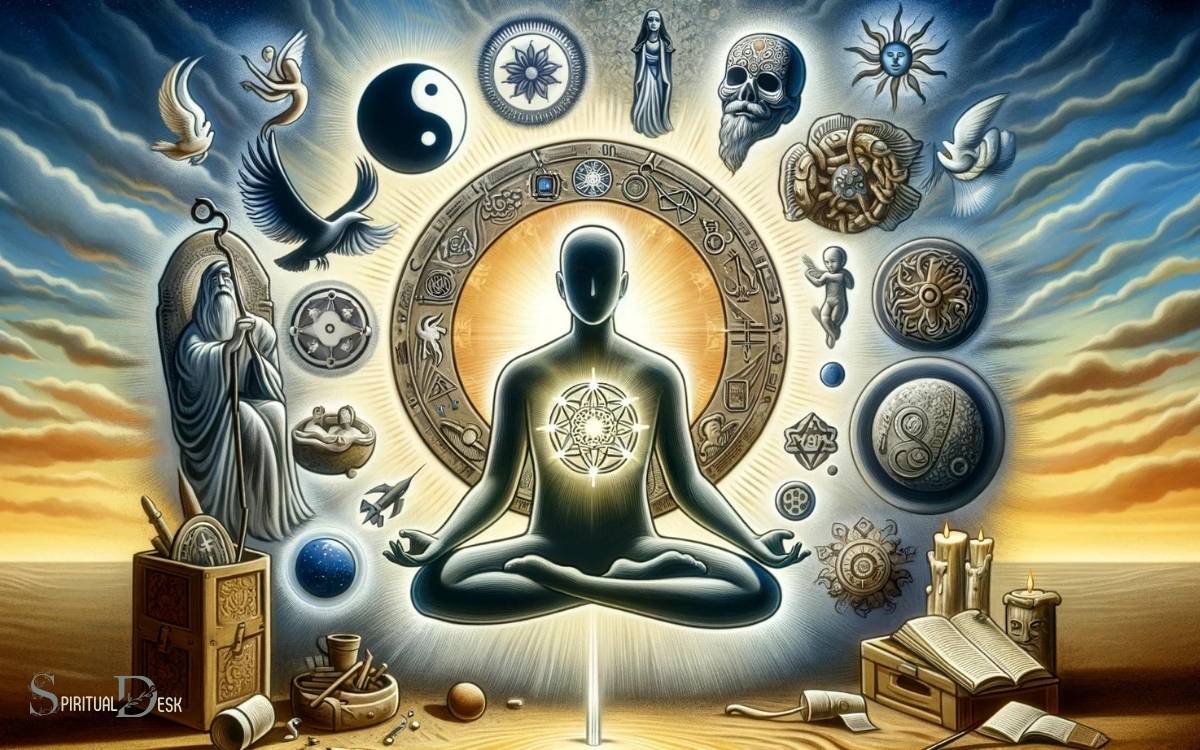
Key Takeaway
The Distinction Between Being Religious and Spiritual
| Aspect | Religion | Spirituality |
|---|---|---|
| Definition | Organized belief system with specific practices and institutions. | Individual and personal search for meaning and connection. |
| Focus | Often on rituals, doctrines, and communal worship. | Personal inner experience and development of personal beliefs. |
| Requirement | May require membership or identification with a specific group. | No formal membership; often an individual journey. |
| Expression | Through ceremonies, scripture reading, and religious observances. | Through meditation, personal reflection, and ethical living. |
| Connection | To a specific religious tradition or community. | To a broader sense of existence or a higher power. |
Defining Religion and Spirituality
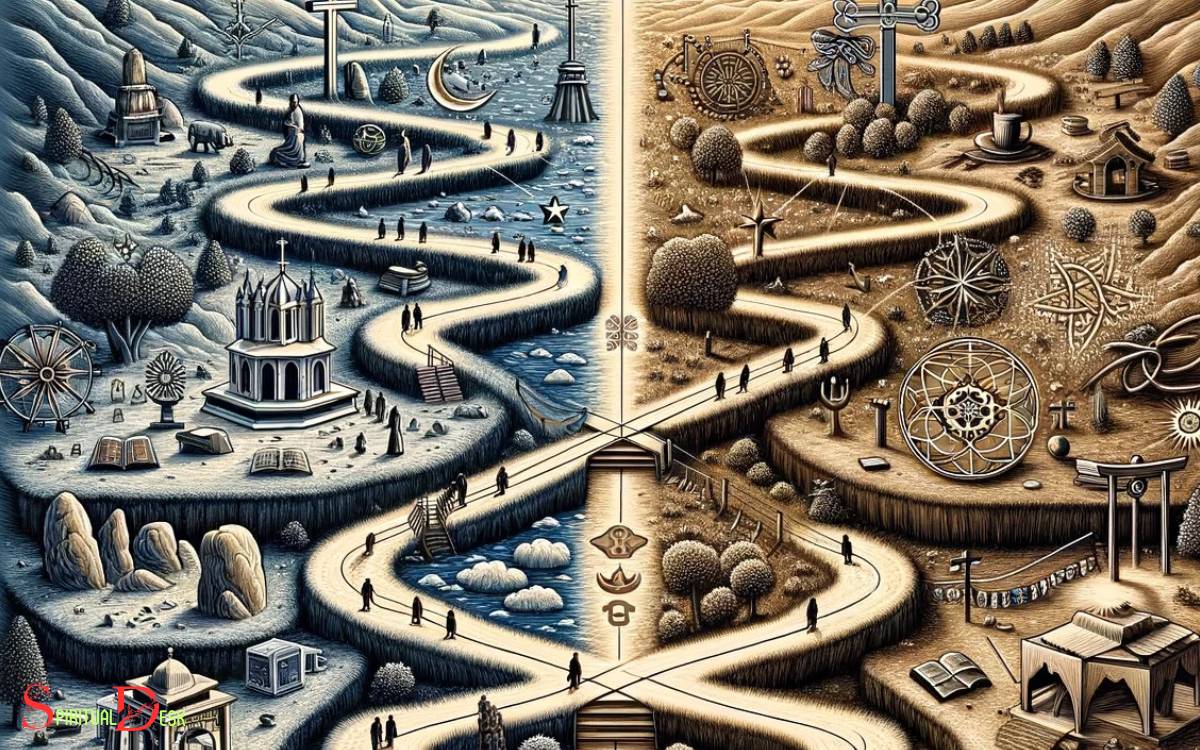
When considering the distinction between religion and spirituality, it is essential to grasp the nuanced differences between the two concepts.
Religion often involves organized systems of beliefs, practices, and rituals centered around a higher power or deity. It provides a framework for moral and ethical guidance, often within a community setting.
Spirituality, on the other hand, is more personal and individualistic, focusing on the inner journey of connecting with something greater than oneself. It doesn�t necessarily adhere to specific dogmas or institutions.
While religion can be a part of spirituality for some, spirituality can exist independently of organized religion.
Understanding these differences can help us appreciate the diversity of human beliefs and experiences, fostering respect and empathy for varying perspectives on the divine and the transcendent.
Historical Perspectives on Religion
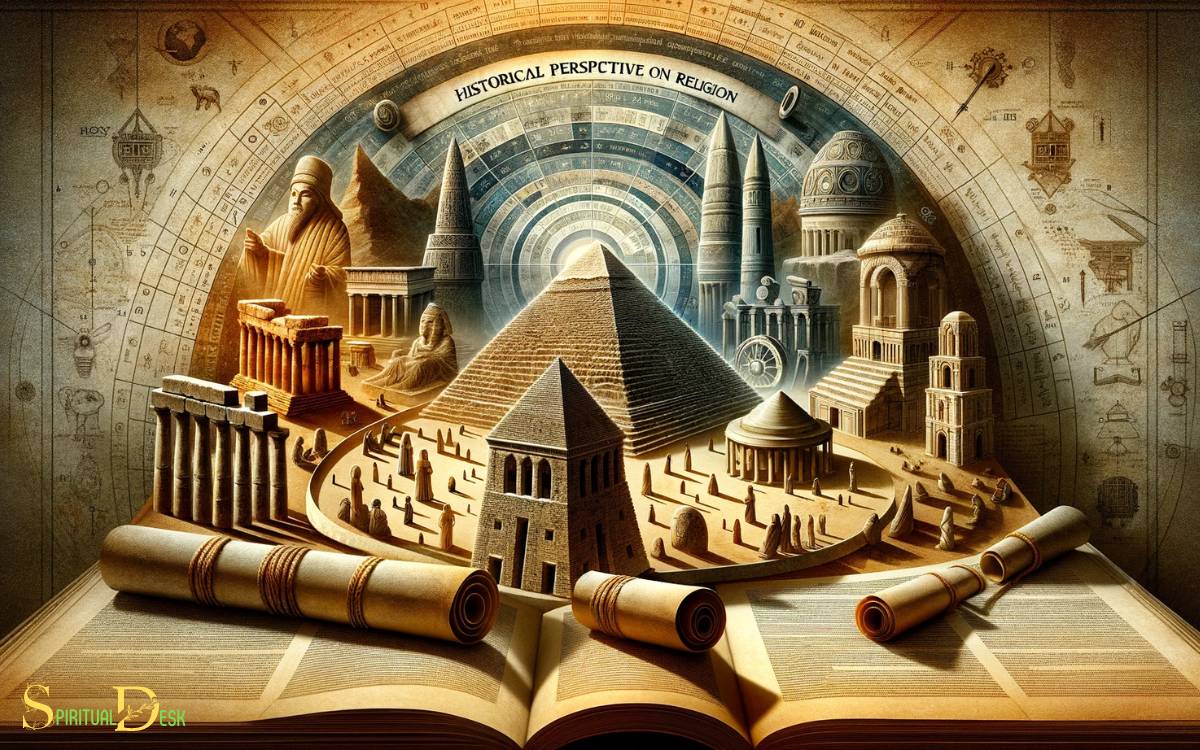
As I delve into historical perspectives on religion, it�s crucial to understand how faith traditions have evolved over time and shaped human societies.
The study of historical perspectives on religion can evoke a sense of awe and wonder as we uncover the deep roots of belief systems. It can also bring about empathy and understanding as we realize the profound impact of religion on shaping cultures and civilizations.
Moreover, it may spark contemplation and introspection as we consider the enduring influence of religious narratives and symbols on human thought and behavior.
Finally, exploring historical perspectives on religion might elicit a sense of interconnectedness and unity as we recognize the common threads that run through diverse faith traditions, highlighting our shared human experience.
The Essence of Spirituality
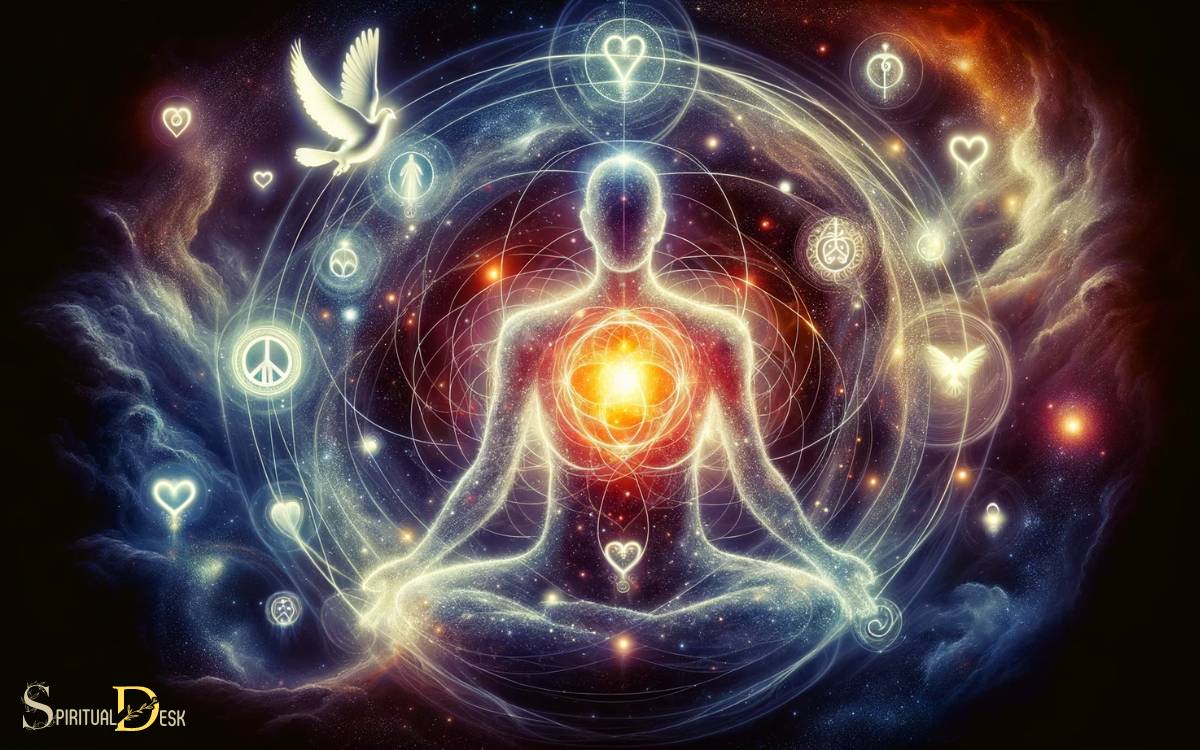
I truly believe that understanding the essence of spirituality begins with recognizing the distinction between being religious and being spiritual. It�s about the inner connection to divinity, the personal journey of seeking a deeper understanding of oneself and the universe.
These points will shed light on the core aspects that define spirituality and its significance in one�s life.
Religious Vs Spiritual
Although I am religious, I find it important to explore the essence of spirituality and its differences from religious practice.
Spirituality, for me, encompasses a personal connection with the divine, a deep sense of inner peace, and a profound feeling of interconnectedness with all living beings.
Here are four key differences between religious and spiritual beliefs that I have come to understand:
- Personal Connection: Spirituality often emphasizes the individual�s personal connection with the divine, while religion may focus more on organized rituals and practices.
- Inner Peace: Spirituality tends to prioritize inner peace and mindfulness, whereas religious practices may center around adherence to doctrines and codes of conduct.
- Interconnectedness: Spirituality often encourages the recognition of interconnectedness with all beings, whereas religion may sometimes create boundaries between different belief systems.
- Openness to Interpretation: Spirituality allows for individual interpretation and growth, while religious beliefs may be more structured and less open to personal interpretation.
Understanding these differences has allowed me to appreciate the essence of spirituality while still valuing my religious beliefs.
Inner Connection to Divinity
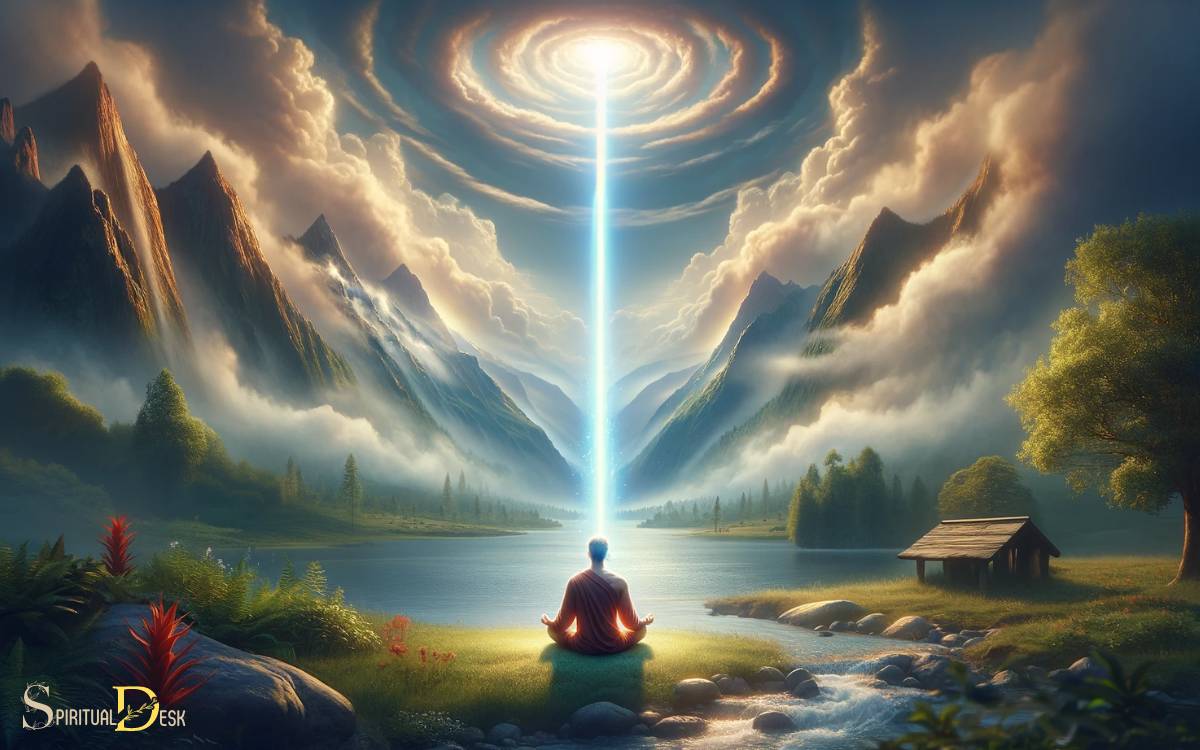
Exploring the essence of spirituality involves cultivating a deep, personal connection to divinity. For me, spirituality is about the inner journey of seeking meaning, purpose, and connection with something greater than myself.
It�s about recognizing the divine presence within and around me, and nurturing that connection through practices like meditation, prayer, or acts of kindness.
This inner connection to divinity brings a sense of peace, guidance, and a feeling of being part of something much larger and more profound. It�s not just about religious rituals or beliefs, but rather a deeply personal and transformative experience that enriches my life.
This inner connection to divinity is the heart of spirituality, allowing me to experience a profound sense of love, unity, and purpose in the universe.
Religious Practices Vs. Spiritual Experiences
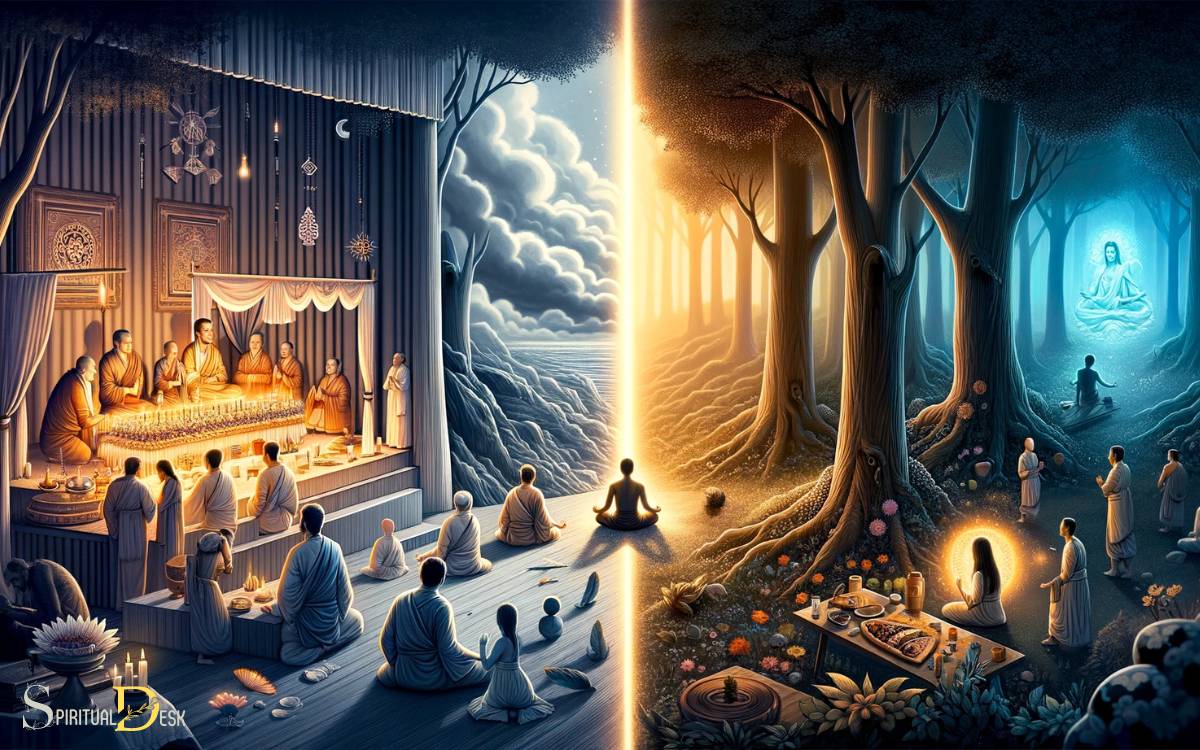
Engaging in religious practices provides structure and guidance, while spiritual experiences offer a deep, personal connection to the divine.
Here�s why this matters:
- Religious practices can create a sense of community and belonging, fostering a support system for individuals in times of need.
- Spiritual experiences can bring a profound sense of peace and purpose, guiding individuals through life�s challenges.
- Religious practices often involve rituals and traditions that connect individuals to their cultural heritage and history, providing a sense of identity and belonging.
- Spiritual experiences can lead to personal transformation, inspiring individuals to lead more compassionate and meaningful lives.
Understanding the interplay between religious practices and spiritual experiences is essential for navigating one�s faith journey. It�s crucial to recognize how these elements complement each other in shaping an individual�s religious and spiritual beliefs.
Cultural Influences on Religious Beliefs
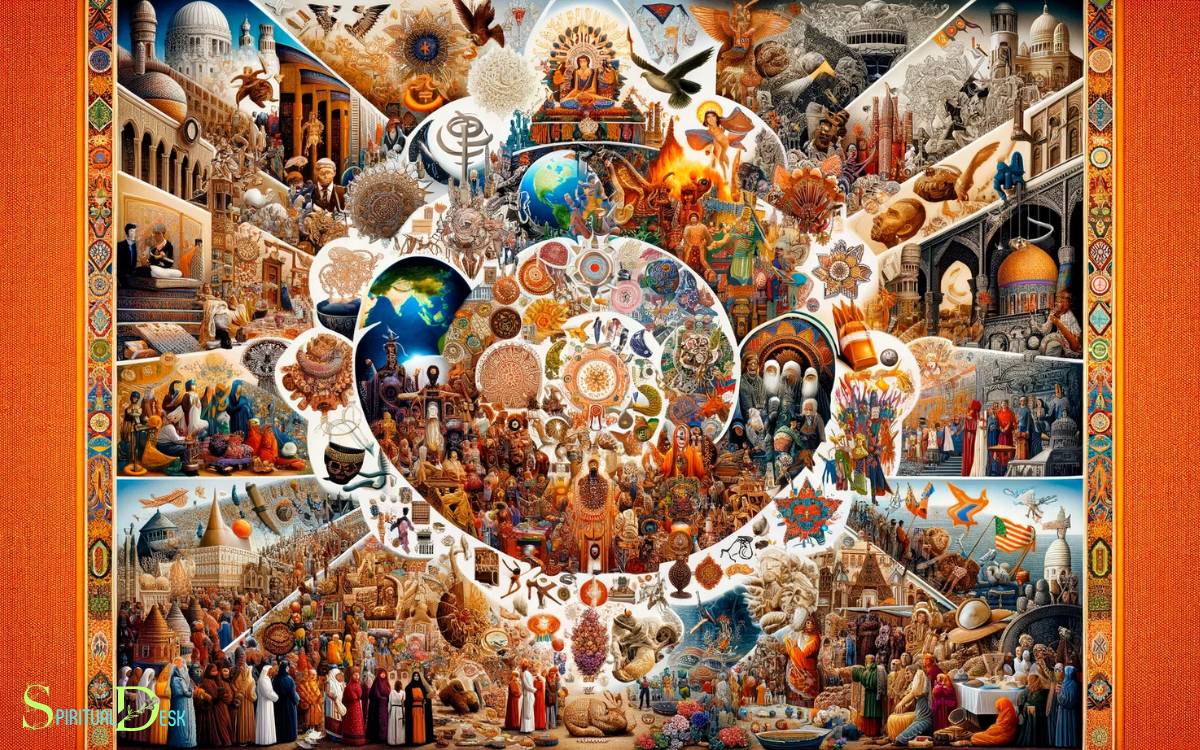
Growing up in a multicultural environment, I�ve witnessed how family traditions and beliefs shape religious practices. Societal norms also play a pivotal role in influencing an individual�s faith and religious adherence.
Moreover, the impact of cultural diversity on religious beliefs cannot be overlooked, as it often leads to a rich tapestry of beliefs and practices within a community.
Family Traditions and Religion
Often, my family�s traditions and cultural background have heavily influenced my religious beliefs.
1) Growing up, I was immersed in rituals and practices that were passed down through generations, shaping my understanding of spirituality.
2) Celebrating religious festivals and participating in family customs created a sense of belonging and connection to my faith.
3) Hearing stories from elders about our cultural heritage instilled a deep respect for our religious principles.
4) The values instilled in me through these traditions have become the foundation of my religious identity, influencing the way I perceive the world and interact with others.
These experiences have not only shaped my religious beliefs but have also provided a rich cultural tapestry that I cherish.
As I reflect on the impact of family traditions on my faith, it becomes evident how societal norms and faith are interconnected.
Societal Norms and Faith
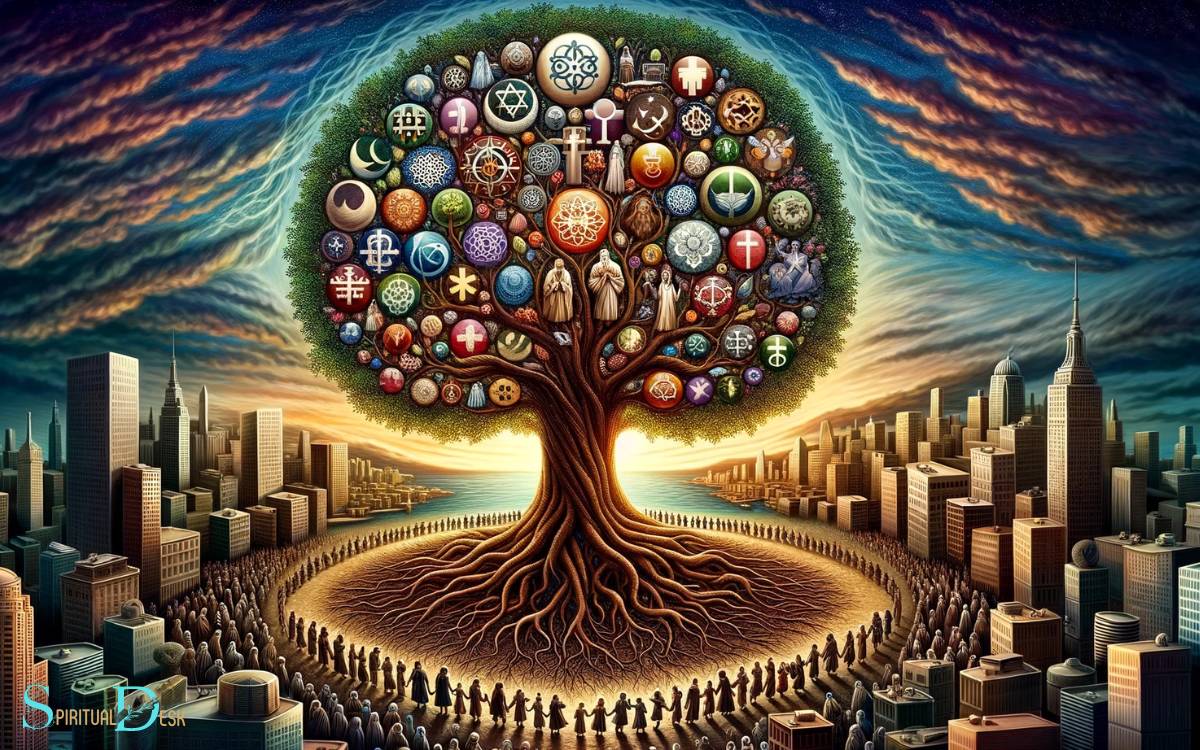
My religious beliefs have been significantly shaped by the cultural influences and societal norms that surrounded me, intertwining with my faith in profound ways.
Growing up, I was immersed in a community where religious practices were deeply intertwined with cultural traditions.
The customs, rituals, and values of my society were closely linked with our religious beliefs, influencing the way we worshiped and understood our faith.
This connection between societal norms and religion created a strong sense of belonging and identity within the community.
However, it also meant that certain cultural practices became intertwined with religious beliefs, sometimes making it challenging to distinguish between the two.
As I navigated these influences, I learned to critically examine the cultural aspects of my faith, acknowledging their impact while also seeking a deeper, more personal connection with my spirituality.
Impact of Cultural Diversity
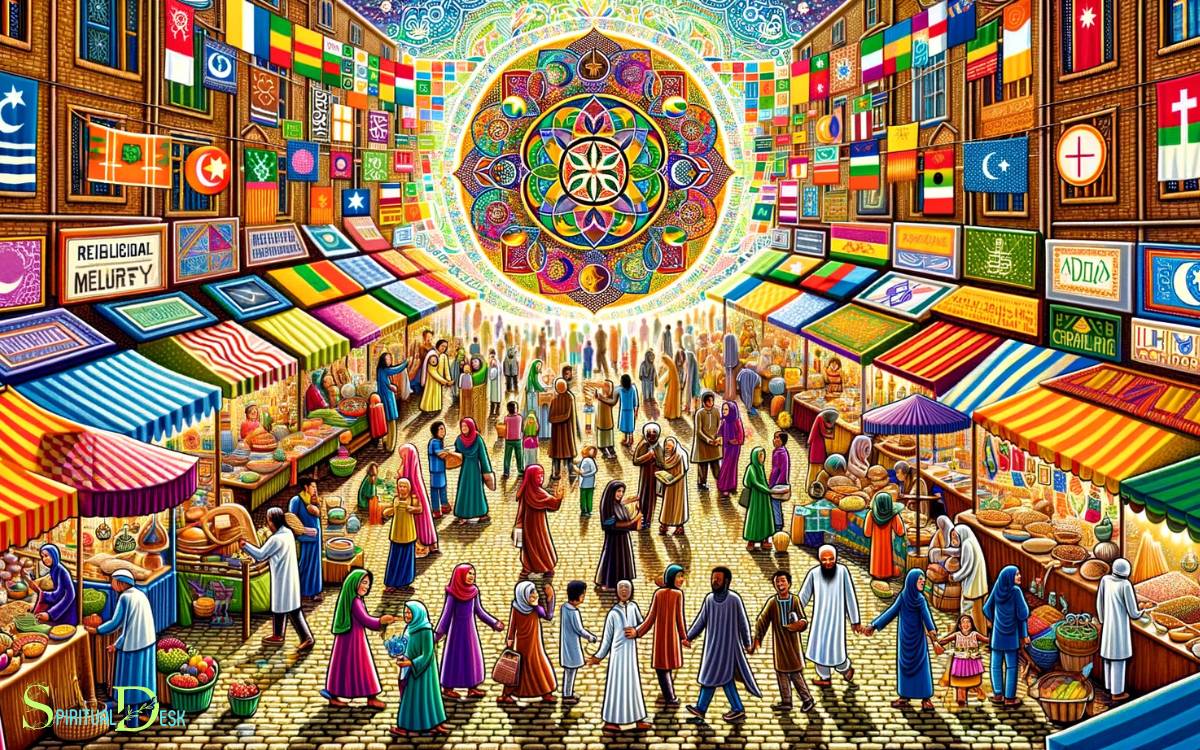
The intertwining of cultural influences with religious beliefs has significantly shaped my understanding of faith.
Growing up in a multicultural community has exposed me to diverse religious practices and beliefs, leading to a deep appreciation for the impact of cultural diversity on spirituality.
Here are a few emotional realizations I�ve experienced:
- Awe: Witnessing the beauty of different cultural rituals and traditions has filled me with a sense of wonder and admiration for the richness of human spirituality.
- Empathy: Understanding how cultural background shapes religious beliefs has taught me to approach others� faith with empathy and an open mind.
- Confusion: At times, navigating through the plethora of cultural influences on religious beliefs has left me feeling perplexed, but it has also sparked a curiosity to learn more.
- Connection: Despite the differences, I�ve found that cultural diversity in religious beliefs has the power to connect people on a fundamental human level.
Personal Journey Towards Spirituality
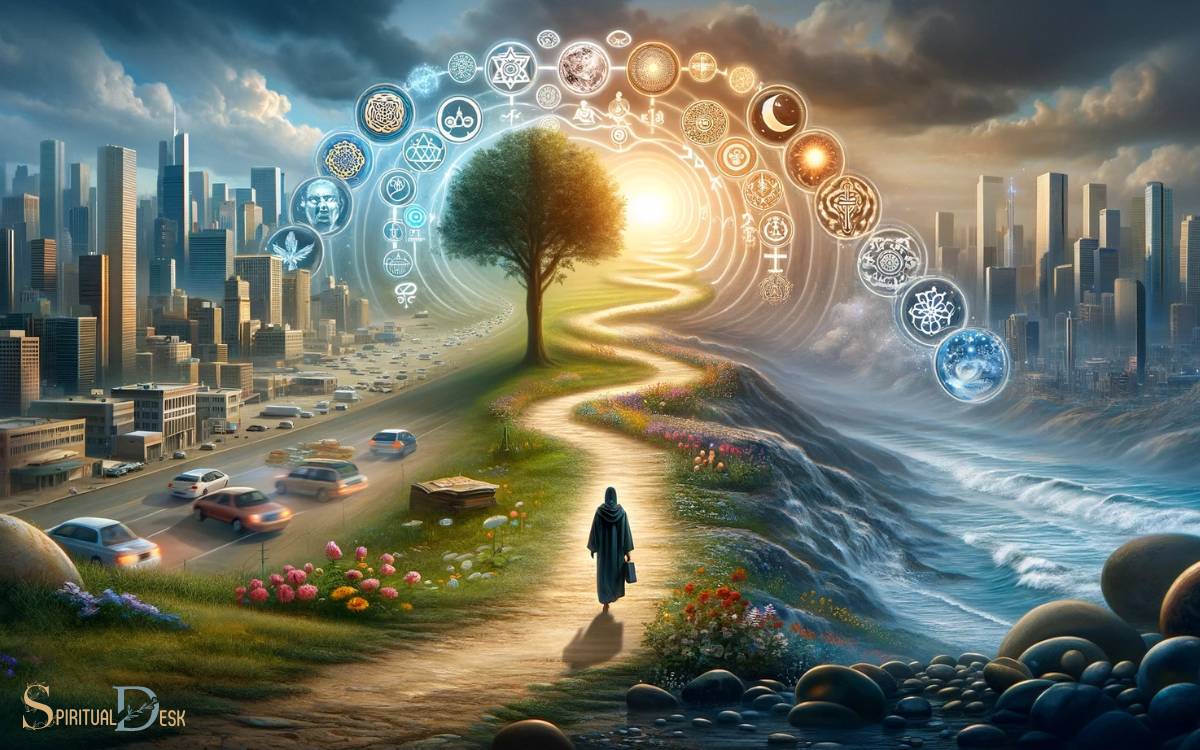
Embarking on a personal journey towards spirituality has been a profound and transformative experience for me. It has involved introspection, seeking meaning beyond the material world, and connecting with something larger than myself.
My journey has been marked by various practices and reflections, each contributing to my spiritual growth.
Here�s a glimpse of my journey:
| Practice | Reflection | Impact |
|---|---|---|
| Meditation | Finding inner peace | Calming the mind |
| Gratitude | Appreciating life | Cultivating positivity |
| Nature walks | Connecting with Earth | Fostering harmony |
Each of these practices and reflections has played a vital role in shaping my spirituality, guiding me towards a deeper understanding of myself and the world around me.
This ongoing journey has not only enriched my life but has also brought a sense of fulfillment and purpose.
Impact of Religion on Spiritual Growth

Embarking on a personal journey towards spirituality has allowed me to recognize the impact of religion on my spiritual growth.
Through this journey, I have come to understand that:
- Religion provides a framework for spiritual practice, offering rituals and traditions that guide individuals in their spiritual development.
- It fosters a sense of community and belonging, providing support and encouragement on the spiritual path.
- Religious teachings and scriptures often serve as a source of wisdom and inspiration, guiding individuals towards deeper spiritual understanding.
- Religion can instill moral and ethical values, encouraging personal growth and the development of virtues such as compassion, empathy, and forgiveness.
These realizations have deepened my appreciation for the role of religion in nurturing spiritual growth, providing a foundation upon which individuals can explore and develop their inner selves.
Finding Harmony Between Religion and Spirituality
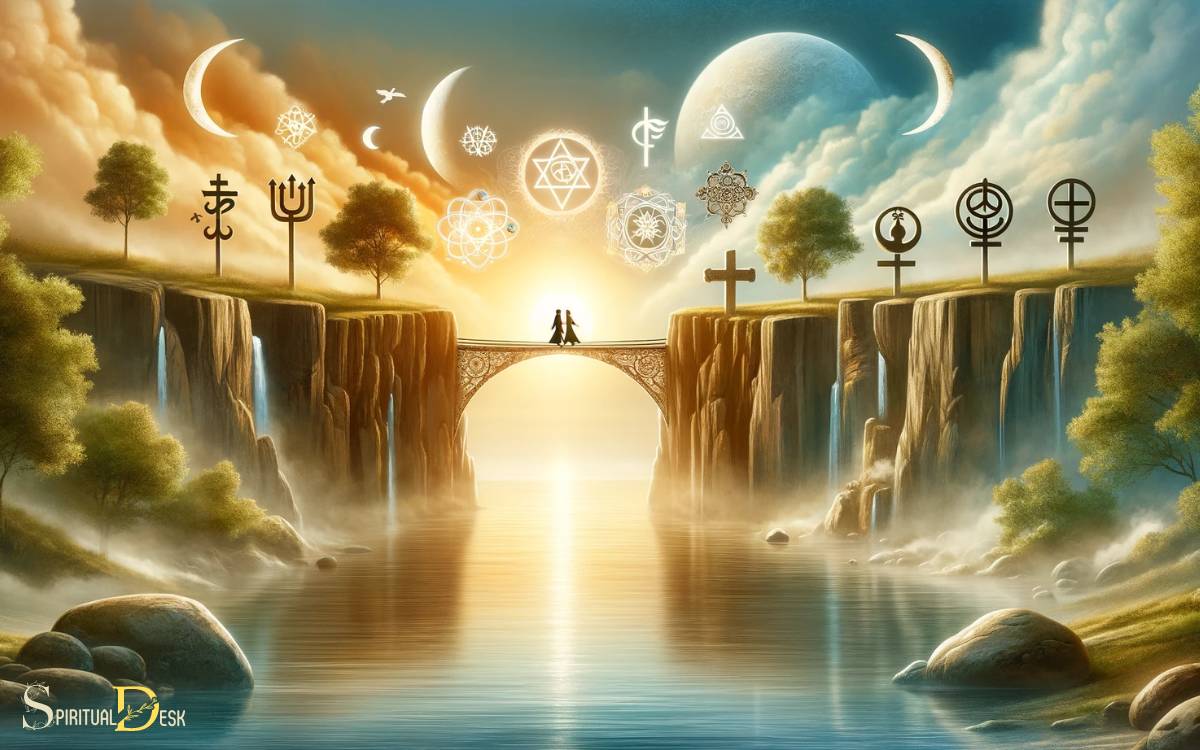
Embarking on a personal journey towards spirituality has allowed me to recognize the impact of religion on my spiritual growth, but finding harmony between religion and spirituality goes beyond adherence to rituals and traditions.
It involves integrating the values and teachings of my faith into my daily life, while also exploring a deeper, personal connection with the divine.
For me, this means finding moments of quiet reflection, engaging in acts of kindness, and seeking a sense of inner peace.
It�s about embracing the core principles of my religion, such as love, compassion, and forgiveness, and allowing these to guide my spiritual journey.
By finding this balance, I�ve discovered a profound sense of fulfillment and purpose, and a deeper connection to both my religious community and my inner self.
Conclusion
As I reflect on my personal journey towards spirituality, I have come to realize that one can be religious without being truly spiritual.
But the real question is, can one truly find fulfillment and inner peace without the essence of spirituality in their religious practices?
The answer lies in the harmony between religion and spirituality, a delicate balance that holds the key to unlocking the true potential of our faith.






